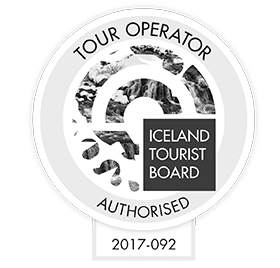- Vehicle Guide
- Passenger cars
- Estate
- Electric
- 4x4 SUVs
- Suzuki Jimny 4x4
- Dacia Duster 4x4
- Suzuki Vitara 4x4
- Suzuki Vitara auto 4x4
- Dacia Bigster 4x4
- Kia Sportage 4x4 Auto
- Kia Sportage PHEV 4x4 auto
- Mitsubishi Outlander PHEV 4x4 auto
- Toyota Rav4 4x4
- Toyota Rav4 4x4 auto
- Kia Sorento 4x4 auto
- Toyota Landcruiser 150 4x4 auto
- Toyota Landcruiser 250 4x4 auto
- Landrover Discovery 5 4x4 auto
- Landrover Defender 4x4 auto
- Prestige
- Minivans
- 4x4 Camper
- Motorhomes
- Driving in Iceland
- Our services
- Locations & Hours
- Travel Inspiration
- South Iceland: A complete guide
- Reynisfjara Beach in Iceland - Your Guide to a Safe Visit
- Best Times to Visit the Golden Circle in Iceland
- North Iceland: A Complete Guide for Drivers
- East Iceland A Complete Guide for Drivers
- West Iceland The Complete Driver’s Guide
- Your Ultimate Guide to Exploring Iceland’s Ring Road
- Driving the Diamond Circle in Iceland: Your Ultimate Guide
- Driving Iceland's Golden Circle: Your Ultimate Guide
- A 10-Day Itinerary in Iceland: Tips + Ideas
- The Perfect Itinerary for 7 Days in Iceland
- The Best Time to See the Northern Lights in Iceland with a Rental Car
- Renting a Camper in Iceland: The Complete Guide
- Getting to Iceland: A Comprehensive Guide on How to Reach the Land of Fire and Ice
- Nature Bath Locations in Iceland: A Complete Guide
- Iceland with Kids: A 5-Day Self-Drive Itinerary
- Winter Driving in Iceland: A Comprehensive Overview for Foreign Tourists
- The Total Solar Eclipse in Iceland – August 12, 2026
- Exploring Iceland's National Parks on a Self-Drive Adventure
- Exploring Iceland's Wonders: A Comprehensive Guide to Activities and Car Rentals
- Springtime in Iceland – Your Comprehensive Travel Guide
- Exploring Iceland's Most Popular Highland Routes
- The Pearls of Westfjords: The Ultimate Guide
- Exploring Iceland's Hidden Gems | Off-the-Beaten-Path Adventures
- Driving in Iceland in June: Tips for a Safe and Scenic Summer Road Trip
- Driving in Iceland in July: Tips, Routes & Rentals
- Driving in Iceland in August: Late-Summer Freedom on the Open Road
- Guide to Skaftafell Iceland Self-Drive A Journey Through Fire and Ice
- Eco-Friendly Road Trips in Iceland, Sustainable Travel Tips
- Photographer’s Paradise Top Scenic Drives in Iceland for Stunning Shots
- Iceland's Folklore and Legends A Road Trip Through Mythical Sites
- Iceland’s Midnight Sun and How to Make the Most of 24-Hour Daylight
- Exploring Iceland’s Viking Heritage: Top Historical Sites
- Chasing Waterfalls: A Road Trip to Iceland’s Most Spectacular Cascades
- Iceland's Volcanic Wonders: A Self-Drive Tour of Active and Dormant Volcanoes
- Tee Off in the Land of Fire and Ice: A Guide to Golfing in Iceland
- Birdwatching in Iceland: Puffins and Beyond
- Iceland’s Diverse Beaches: Beyond the Black Sands
- Icelandic Horses: The Unique Breed of the North
- Beyond the Ring Road: Iceland’s Hidden Scenic Drives
- Iceland’s Ice Caves: A Year-Round Adventure
- Wildlife Watching in Iceland: Where and When to Go
- Iceland’s Hidden Hot Springs: A Self-Drive Guide to Secret Soaks
- Navigating Iceland’s Weather: What to Expect Each Season
- Tröllaskagi Peninsula: Iceland’s Mountainous Marvel — A Scenic Road Trip with Höldur
- Mastering Iceland's Roundabouts: A Driver’s Guide
- Essential Tips for Renting a Car in Iceland
- Navigating Iceland’s One-Lane Bridges: Your Guide to Safe and Scenic Crossings
- Exploring Iceland’s Film Locations by Rental Car
- 5 Must-Visit Destinations Within Two Hours of Keflavík Airport
- Seasonal Car Rental Tips for Iceland’s Summer Festivals
- Understanding Iceland's F-Roads: How to Drive Safely Into the Highlands
- What Makes Iceland Unique: Top 15 Highlights for an Unforgettable Journey
- Driving and Hiking in Harmony: Explore Iceland's Natural Wonders with Höldur Car Rental
- Best Car to Rent in Iceland?
- Avoiding Common Car Rental Mistakes in Iceland
- Making Your Car Rental in Iceland Child-Friendly: Tips for Stress-Free Family Travel
- Exploring Akureyri, Iceland’s Northern Gem, with EasyJet and Europcar
- Renting a Manual or Automatic Car in Iceland
- Discover the Arctic Coast Way in Iceland with Höldur Car Rental
- How to Save on Fuel Costs During Your Iceland Road Trip
- Electric vs. 4x4 Rentals in Iceland: Which is Right for Your Trip?
- Top Scenic Detours Off Iceland's Ring Road
- Top Safety Tips for First-Time Drivers on Iceland’s Roads
- Cultural Pit Stops Along Iceland’s Ring Road
- Your Guide to Exploring Stuðlagil Canyon by Car: Iceland’s Basalt Beauty Awaits
- Day Trip Ideas From Reykjavik by Rental Car
- Visit Glymur Waterfall: The Ultimate Self-Drive Adventure from Reykjavík
- Discover the Volcanic Wonders of Lake Mývatn by Car
- Discovering the Magic of Snæfellsnes Peninsula by Car
- Your Self‑Drive Guide to Gullfoss Waterfall
- A Guide to Seljalandsfoss Waterfall in Iceland: Explore by Car
- Exploring Reykjanes Peninsula A Self Drive Guide
- Exploring Iceland Landmannalaugar by 4x4
- A Beginner's Guide to River Crossings in Iceland
- Best Car Rental Offers for Iceland’s Summer Adventures
- Your Self‑Drive Guide to Þingvellir National Park
- Your Ultimate Guide to Geysir, Iceland: All You Need to Know
- How to Pay for the Vaðlaheiðargöng Tunnel
- Your Guide to Visiting Jökulsárlón Glacier Lagoon
- The Diamond Beach in Iceland: A Sparkling Wonder Worth Visiting
- Parking fines in Iceland: how to pay and what to do if you receive one
- Where to find overnight parking in Reykjavík: a local’s guide for travellers
- How to park for free in Reykjavík: tips to save on your Iceland trip
- How to pay for parking in Reykjavík - A friendly guide for drivers in Iceland
- Game of Thrones Filming Locations in Iceland: A Self-Drive Guide
- How to Choose the Right Car Rental at Keflavík Airport
- Flying Within Iceland: Your Guide to Domestic Routes and Regional Airports
- Top 3 Must-See Attractions on Iceland's Golden Circle
- Hidden Gems Along the Golden Circle Route
- Your Essential Guide to Iceland: Currency, Culture, and Car Rental Tips
- How to Plan the Perfect Golden Circle Self-Drive Tour
- The Comprehensive Guide to Rental Car Sizes at Keflavik Airport
- Húsafell & Hallmundarhraun: Hidden Lava Field Adventures by Car
- Iceland Weather by Month: What to Expect and How to Drive Safely with Holdur Car Rental
- A Guide to Iceland’s Quirky Roadside Attractions
- Exploring Iceland’s Lava Tubes | Self-Drive Cave Adventures with Höldur Car Rental
- Coolcation in Iceland: Self-Drive Your Summer Escape to the North
- Driving Iceland’s Coastal Roads: A Guide to Lesser-Known Peninsulas
- Top Tips for Driving in Iceland Safely Year-Round
- The Best Rest Stops and Viewpoints Along Iceland's Ring Road
- Driving in Iceland in September: Embrace the Autumn Adventure
- Your Guide to Exploring Fjaðrárgljúfur – South Iceland’s Fairytale Canyon
- Explore Reykholt on a Self-Drive Tour in Iceland
- How to Choose the Right Insurance for Your Iceland Car Rental
- Hiking Múlagljúfur Canyon: Iceland’s Hidden Gem You Can’t Miss
- Understanding Iceland's Weather and How It Affects Driving Conditions
- Dyrhólaey: A Complete Self-Drive Guide to Iceland's Breathtaking South Coast
- Where to See Iceland’s Tectonic Plates Up Close
- Scenic Journey on Kjalvegur Road 35 Reykjavik to Akureyri
- Guide to Visiting Svartifoss with a Rental Car
- Kerið Crater Lake in Iceland: A Self-Drive Guide
- Your Complete Guide to Stokksnes, Iceland with a Rental Car
- Hengifoss Waterfall in Iceland: The Ultimate Self-Drive Guide
- Your Complete Guide to Visiting Skógafoss Waterfall with a Rental Car
- Into the Heart of Þórsmörk: Iceland’s Valley of Thunder
- Dynjandi Waterfall in Iceland: The Ultimate Self-Drive Guide
- Visiting Ásbyrgi Canyon in North Iceland by Car: A Complete Self-Drive Guide
- Driving in Iceland in October: Embrace the Autumn Transition
- Hraunfossar: Iceland’s Hidden Gem for Self-Drive Travellers
- Barnafoss Waterfall: Iceland’s Raging Cascade with a Legend
- Driving in Iceland in November: Your Complete Guide to a Spectacular Autumn Adventure
- Fishing in Iceland: All You Need to Know
- Öxarárfoss Waterfall in Iceland: A Self-Drive Guide with Höldur
- Life in Iceland: Essential Guide to Living in the Land of Fire and Ice
- People of Iceland - 12 Fun Facts About Icelanders
- Glaumbær Turf Houses: A Self-Drive Guide to Iceland’s Living History
- Húsavík: Whale Watching Capital of Iceland
- Svínafellsjökull Glacier: A Self-Drive Guide to Iceland’s Ice Giants
- Kirkjubæjarklaustur: A Historic South Coast Gem
- Vík í Mýrdal: South Iceland’s Coastal Treasure
- Namaskard: A Self-Drive Guide to Iceland’s Geothermal Wonderland
- Laufás Heritage Site: Where Iceland’s Past Lives On
- Navigating Iceland's Gravel Roads: Tips for a Safe and Smooth Drive
- Iceland's Best Stargazing Spots for Self-Drive Travellers
- Iceland's Best Picnic Spots: Scenic Stops for Self-Drive Adventures
- Top 5 Family-Friendly Hiking Trails Accessible by Rental Car
- 15 Tips for Travelling to Iceland
- How to Plan a Winter Photography Road Trip in Iceland
- Visiting Gljúfrabúi Waterfall — A Self-Drive Guide
- How to Spot Puffins in Iceland: A Self-Drive Adventure
- Your Essential Guide to Winter Tyres and Safe Driving in Iceland
- Iceland’s Most Active Volcanoes: A Self-Drive Guide
- Iceland’s Most Scenic Bridges and River Crossings: A Self-Drive Guide
- Iceland’s Most Instagrammable Spots for Self-Drive Travellers
- How Cold Is It in Iceland During Winter? A Self-Drive Guide
- Explore Dimmuborgir: A Self-Drive Guide to Iceland's Dark Castles
- The Ultimate Guide to Iceland’s Top 5 Waterfalls by Car
- Iceland’s Best Scenic Routes for Autumn Foliage: A Self-Drive Guide
- The Best Time to Visit Iceland for Self-Drive Travellers
- Self-Drive Adventures to Iceland’s Remote Lighthouses
- Selfoss Waterfall Self-Drive Guide: Explore Iceland Your Way
- All About the Icelandic Sheep
- Vestrahorn: A Self-Drive Guide to Iceland’s Stokksnes Peninsula
- Höfn, Iceland: The Lobster Town Self-Drive Guide
- Exploring Arnarstapi: A Self-Drive Guide
- A Guide to Iceland's Seasonal Foods for Your Road Trip
- Hverfjall Crater, Iceland: A Self-Drive Guide
- Self-Drive Guide to Visiting Askja
- A Self-Drive Guide to Visiting Kerlingarfjöll
- A Self-Drive Guide to Gunnuhver Geothermal Area
- Skriduklaustur, Iceland: A Self-Drive Guide to History & Culture
- Your Ultimate Guide to Visiting the Blue Lagoon in Iceland
- Borgarnes, Iceland: Top Things to Do & Self-Drive Guide
- A Guide to Glaciers in Iceland
- Car Rental Insurance in Iceland: What’s Usually Included, What’s Not & How to Choose
- Best Car Models for Iceland’s Terrain: Recommendations by Route
- Solo Traveller’s Guide to Self-Driving in Iceland
- Exploring Iceland’s Arctic Circle: What to See and Do
- How to Plan a Budget-Friendly Road Trip in Iceland
- The History of Iceland’s National Day: A Self-Drive Celebration
- Where to Spot Whales in Iceland: A Self-Drive Guide
- The Diamond Circle vs. The Golden Circle: Which Route is Right for You?
- Embracing a Greener Journey: Sustainability in Iceland
- Granni: A Self-Drive Guide to Iceland’s Neighboring Waterfall
- Háifoss: A Self-Drive Guide to Iceland’s Tallest Waterfall
- Iceland's Best Camping Spots for Road Trippers
- Gjáin: A Self-Drive Guide to Iceland’s Hidden Oasis
- Iceland's Hidden Waterfalls: Beyond the Tourist Trails
- Hjálparfoss: A Self-Drive Guide to Iceland’s Helping Falls
- Seasonal Self-Drive Itineraries in Iceland: What’s Open When?
- Kirkjufell: A Self-Drive Guide to Iceland’s Most Photographed Mountain
- Fjallabak Nature Reserve: A Self-Drive Guide to Iceland’s Rugged Highlands
- Hrafntinnusker: A Self-Drive and Hiking Guide to Iceland’s Obsidian Wilderness
- When to Visit Iceland: Northern Lights and Ice Caves vs. Hiking and Highland Adventures
- Visiting Laugarvatn Fontana Spa with a Rental Car: A Relaxing Icelandic Getaway
- Hvítserkur Rock: A Self-Drive Guide to Iceland’s Dragon of the North
- Skiing in Iceland: A Self-Drive Guide for Winter Adventurers
- Visiting the Mývatn Nature Baths by Car: A Self-Drive Guide
- Visiting Vök Baths in East Iceland: A Self-Drive Guide
- Visiting Skútustaðir Pseudo-Craters: A Self-Drive Guide
- Visiting Hljóðaklettar: A Self-Drive Guide on the Diamond Circle
- The Ultimate Guide to Exploring Reykjavik with a Rental Car
- Visiting Seljavallalaug: A Hidden Gem in South Iceland
- Guide to Sólheimajökull Glacier by Iceland Car Rental
- Eyjafjallajökull: Iceland’s Glacier Volcano
- Ísafjörður, Iceland: Your Ultimate Self-Drive Guide to the Westfjords
- What Continent is Iceland In? A Traveler's Guide
- Katla Volcano: A Guide to Iceland's Sleeping Giant
- The Magic of Icelandic Water: A Traveler's Guide
- A Guide to Exploring Akureyri by Rental Car
- A Self-Drive Guide to the Krafla Volcanic Region
- 12-Day Iceland Self-Drive: The Complete Itinerary
- Hekla Volcano: A Self-Drive Guide to Iceland's Gateway
- Visiting Deildartunguhver: A Self-Drive Guide to Europe’s Most Powerful Hot Spring
- Exploring Borgarfjörður: A Self-Drive Guide to West Iceland
- Exploring Stórurð: A Self-Drive and Hiking Guide to East Iceland
- Visiting the Forest Lagoon in North Iceland: A Self-Drive Guide
- Driving in Iceland in December: Embrace the Winter Wonderland
- Exploring Grábrók: A Self-Drive Guide to Iceland’s Volcanic Crater
- Exploring Látrabjarg: A Self-Drive Guide to Iceland’s Westernmost Point
- Iceland Car Hire Tips for UK Drivers: What You Need to Know
- 4-Day Iceland Winter Itinerary: The Best of the South
- Mount Mælifell: Iceland’s Emerald Volcano
- How Long to Drive Around Iceland? A Self-Drive Guide
- Driving in Iceland in January
- Exploring Djúpavík: A Self-Drive Guide to Iceland’s Remote Westfjords
- What to Wear in Iceland: Tips for Every Season
- Things to Do in Stykkishólmur: A Self-Drive Adventure Through Iceland’s Magical West
- The Secret Lagoon: Iceland’s Hidden Gem of Relaxation and Discovery
- The Silver Circle of Borgarfjörður: Your Ultimate Self-Drive Guide
- Snæfellsjökull: A Journey to Iceland’s Glacier of Legends
- Car Rental Iceland 4x4: Best 4WD Options for Your Trip
- What to See in Iceland: 20 Places You Don’t Want to Miss
- How to Prepare for an Iceland Road Trip
- Your Guide to Visiting Fagrifoss Waterfall by Car
- Exploring Stakkholtsgjá Canyon: A Self-Drive Adventure in Iceland
- Kolugljúfur Canyon: A Guide to Iceland's Hidden Gem
- Exploring Kvernufoss: A Hidden Gem in South Iceland
- Skógar Museum: A Journey Through Iceland's History
- 2 Days in Iceland: The Perfect Itinerary
- Exploring Berserkjahraun: A Self-Drive Guide to Iceland’s Lava Fields
- Driving in Iceland in February: Your Complete Guide
- Iceland Daylight Hours by Month: Planning Your Trip
- Petra’s Stone Collection: A Self-Drive Gem in East Iceland
- Iceland's New Kilometer-Based Road Tax: Everything You Need to Know
- Krýsuvíkurbjarg Cliffs: Self-Drive Guide to Iceland’s Wild Coast
- Brimketill: The Reykjanes Peninsula’s Natural Lava Pool
- Exploring Eldhraun Lava Field: A Self-Drive Guide to Iceland’s Volcanic Marvel
- Iceland 2026 Car Rental Guide
- Choosing the Best 4x4 for Iceland's Westfjords
- How Sagas and History Shape Iceland's Driving Routes
- Driving in Iceland After Dark: How to Plan Safe Evening & Night Drives
- What to Do When Roads Close in Iceland: A Traveller’s Plan B Guide
- Iceland With a 2WD Only: No‑Gravel, No F‑Road Itineraries (2, 5 & 7 Days, All Seasons)
- Iceland Through the Windshield: Landscapes You’ll See Without Leaving the Car
- Iceland EV Road Trips Made Easy (2026 Guide)
- Iceland Speed Cameras & Fines: The 2026 Driver’s Guide for Visitors
- 24 Hours in Iceland (KEF Layover): Two Seasonal Micro-Itineraries by Car
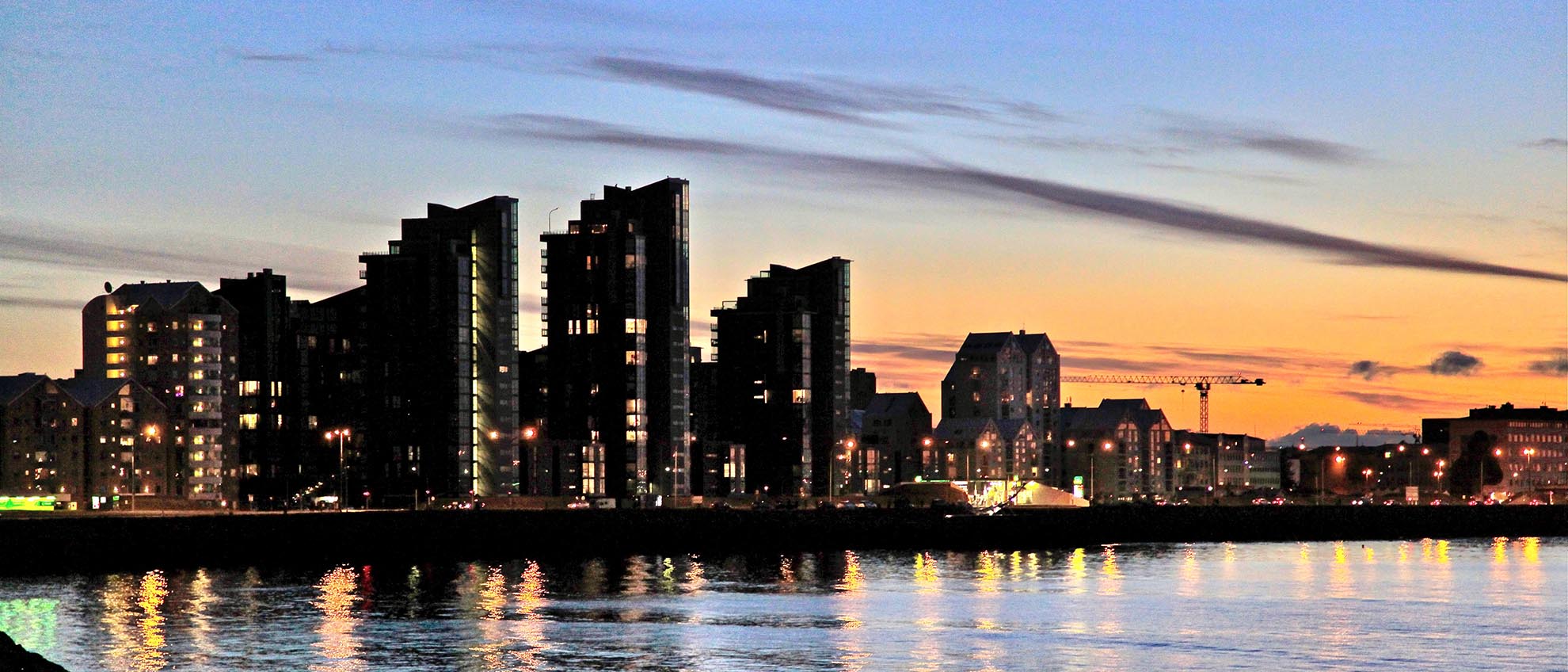
Cultural Insights
Life in Iceland: Essential Guide to Living in the Land of Fire and Ice
26.06.2025
Iceland offers a unique blend of pristine natural beauty, progressive social values, and unparalleled quality of life that captivates visitors and residents alike. This comprehensive guide explores every aspect of Icelandic living, from the practicalities of daily life to the extraordinary experiences that define this Nordic nation. Whether you're planning an extended visit or considering a permanent move, understanding Iceland's way of life will enhance your journey and help you make informed decisions about your future in this remarkable country.
Understanding Iceland's Population and Culture
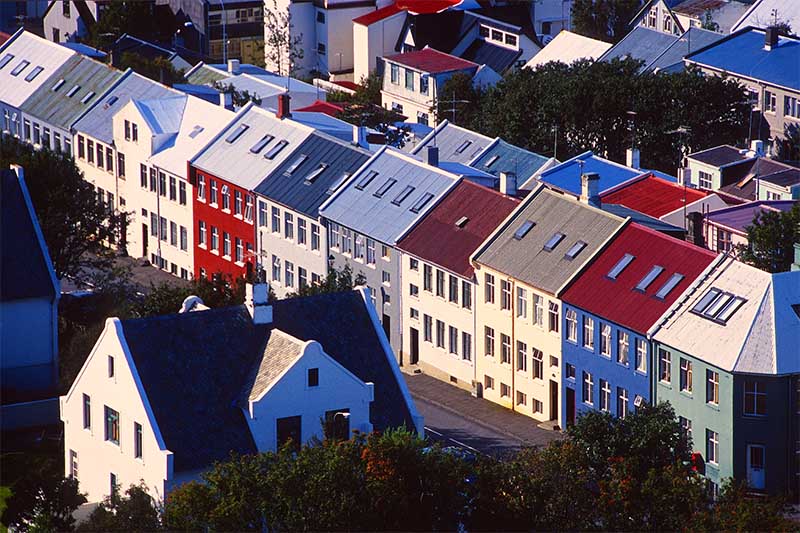
Iceland's intimate population of approximately 380,000 residents creates a distinctive social fabric that sets it apart from larger nations. Nearly two-thirds of Icelanders live in the Reykjavik metropolitan area, whilst smaller communities dot the coastline and interior regions. This small population fosters an extraordinary sense of community where personal connections flourish and social trust remains remarkably high.
The demographic composition reflects Iceland's progressive values and open immigration policies. Approximately 15% of residents are foreign-born, representing over 100 nationalities. This diversity enriches the cultural landscape whilst maintaining Iceland's strong national identity rooted in Norse heritage and literary tradition.
Understanding local customs becomes essential when visiting or relocating. Icelanders value directness in communication, environmental consciousness, and work-life balance. The concept of "þetta reddast" (it will work out) embodies the national optimism and resilience that helps residents navigate challenges with confidence.
For visitors planning extensive exploration, car hire in Iceland provides unmatched freedom to experience authentic local communities. Iceland car rental services are operatet by Holdur throughout the country, with major locations including Reykjavik car rental centres and convenient Keflavik Airport car hire options for immediate access upon arrival.
Exploring Iceland's Cost of Living
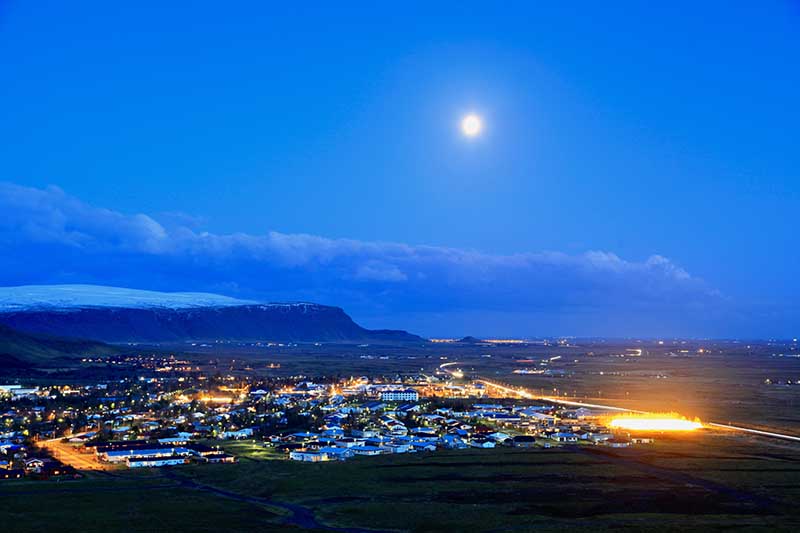
Living costs in Iceland reflect the country's high standard of living, though expenses vary significantly depending on lifestyle choices and location. Understanding these costs helps both temporary visitors and potential residents plan effectively.
Housing represents the largest expense category. Reykjavik rental prices average £1,200-£2,000 monthly for one-bedroom flats, whilst purchasing property requires substantial investment with average home prices exceeding £400,000. Rural areas offer more affordable options, though availability remains limited.
Food expenses can surprise newcomers accustomed to continental European prices. A typical grocery shop for two people costs £80-£120 weekly, with restaurant meals ranging from £15-£25 for casual dining to £50+ for fine dining experiences. Local produce and seafood offer better value than imported goods.
Transportation costs vary dramatically based on location and travel needs. Urban areas provide excellent public transport, whilst rural exploration requires personal vehicles. Iceland car rental prices reflect seasonal demand, with summer rates significantly higher than winter periods. Airport car hire Iceland provides immediate mobility but booking advance car rental Iceland arrangements often secures better rates.
Utilities average £150-£200 monthly for standard apartments, though geothermal energy keeps heating costs remarkably low. Internet, mobile services, and other essential services align with European standards whilst maintaining high quality and reliability.
Healthcare and Education Systems Excellence
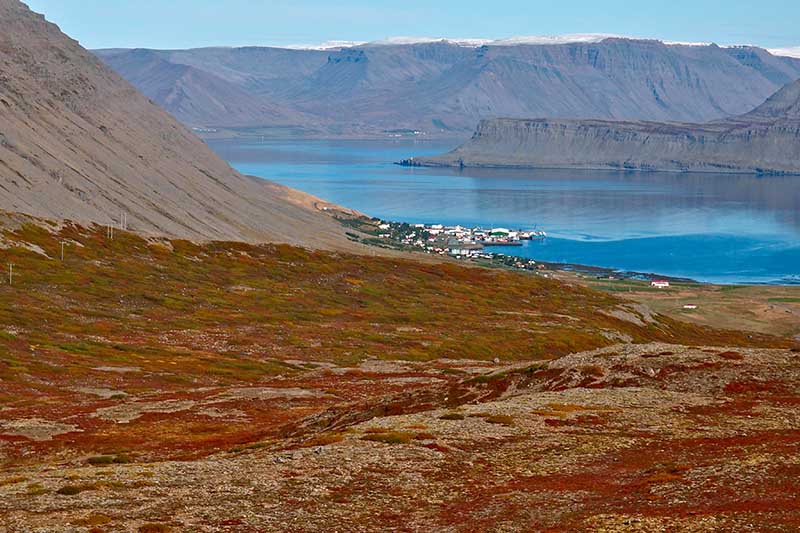
Iceland's healthcare system ranks among the world's finest, providing comprehensive coverage through a universal model funded by taxes and nominal patient contributions. Residents enjoy access to high-quality medical services, preventative care, and specialist treatments without significant financial burden.
The system emphasises primary care through local health centres, with referrals to specialists and hospitals when necessary. Emergency services operate efficiently throughout the country, though rural areas may experience longer response times. Prescription medications receive partial subsidies, making treatments affordable for chronic conditions.
Private healthcare options supplement the public system, offering reduced waiting times for elective procedures and enhanced comfort amenities. Many residents maintain private insurance through employers whilst relying primarily on public services for routine care.
Iceland's education system demonstrates similar excellence, ranking consistently high in international assessments. Compulsory education spans ages 6-16, followed by optional upper secondary programs. The University of Iceland and other institutions provide world-class higher education with minimal fees for domestic and EU students.
Multilingual education emphasises Icelandic, Danish, and English proficiency from early ages. This linguistic foundation enables graduates to pursue international opportunities whilst maintaining strong cultural connections to Iceland.
Career Opportunities and Professional Development
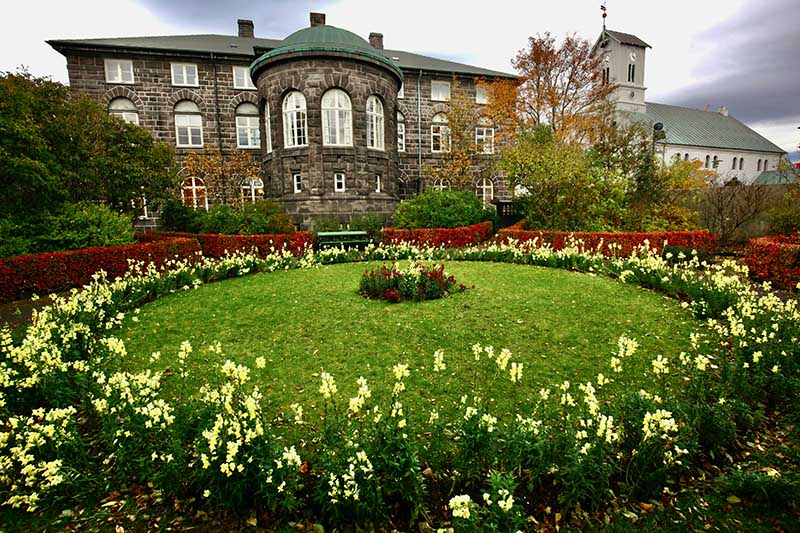
Iceland's robust economy creates diverse employment opportunities across traditional and emerging sectors. The service industry, including tourism, finance, and technology, employs the majority of workers, whilst fishing, renewable energy, and creative industries maintain significant importance.
Tourism sector growth has generated numerous positions in hospitality, guiding, and transportation services. Car rental Iceland businesses, along with tour operators and accommodation providers, seek multilingual staff during peak seasons. These roles often provide entry points for international workers seeking Icelandic experience.
Technology and innovation sectors attract international talent through competitive salaries and flexible working arrangements. Reykjavik's growing reputation as a Nordic startup hub creates opportunities in software development, biotechnology, and renewable energy research.
Traditional industries including fishing, aluminium production, and geothermal energy offer stable employment with strong union representation. These sectors provide pathways to skilled trades and technical specialisations that command excellent compensation.
Professional development receives strong institutional support through adult education programs, professional associations, and government initiatives. The small professional community facilitates networking and mentorship opportunities that accelerate career advancement.
Employment regulations protect workers' rights whilst maintaining economic flexibility. Standard working hours average 40 weekly, with generous holiday entitlements and family leave policies that support work-life balance.
Advantages of Living in Iceland
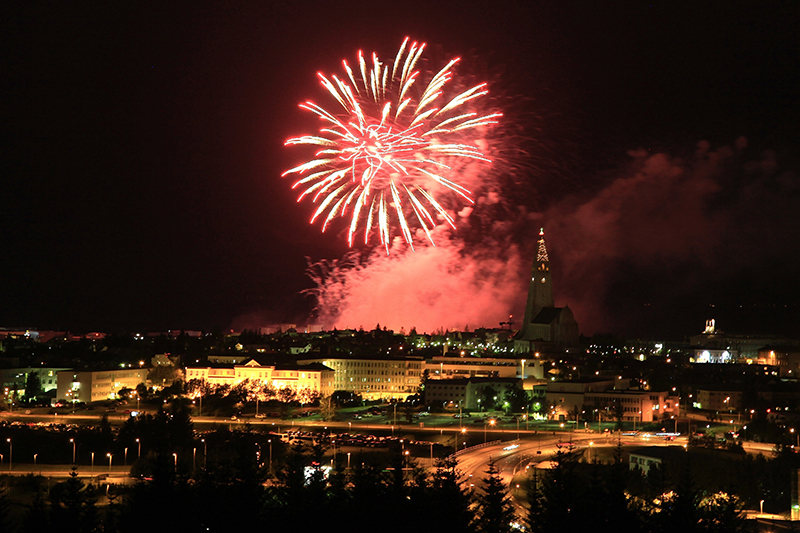
Iceland's exceptional quality of life stems from numerous factors that create an enviable living environment. Natural beauty surrounds residents daily, from dramatic volcanic landscapes to pristine coastal areas accessible within short distances from any location.
Safety and security levels exceed global standards, with violent crime rates among the world's lowest. Children play outdoors unsupervised, doors remain unlocked, and personal security concerns rarely influence daily decisions. This freedom enhances life quality immeasurably.
Environmental consciousness permeates society, creating clean air, renewable energy systems, and sustainable practices across industries. Residents enjoy some of the world's purest tap water, whilst geothermal heating eliminates fossil fuel dependence for most homes.
Social equality and progressive values create inclusive communities where diversity receives genuine acceptance. Gender equality leads global rankings, LGBTQ+ rights enjoy strong protection, and social mobility remains accessible regardless of background.
The northern lights, midnight sun, and dramatic seasonal changes provide natural spectacles that never lose their wonder. Residents develop deep connections to these phenomena that enrich daily experience throughout the year.
Cultural richness emerges from literary traditions, contemporary arts, and music scenes that punch above their weight internationally. The small population ensures cultural events remain intimate and accessible to all residents.
Challenges and Disadvantages to Consider
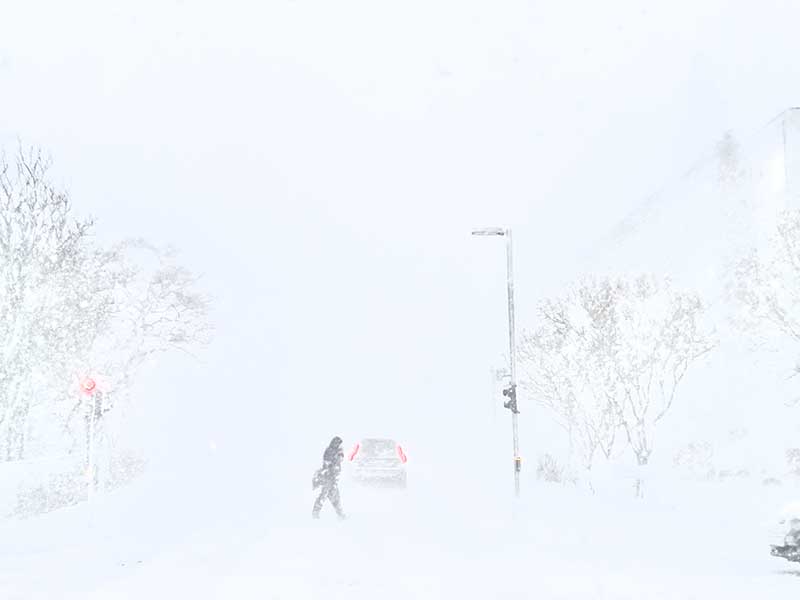
Despite its many advantages, Iceland presents certain challenges that require careful consideration. The isolated location means limited direct flight connections and higher costs for international travel and imported goods.
Weather extremes test residents' adaptability, particularly during winter months with limited daylight and harsh conditions. Seasonal affective disorder affects some residents, requiring proactive mental health management through light therapy and lifestyle adjustments.
The small job market can limit career advancement opportunities in specialised fields. Professional networking becomes crucial, but options may feel restrictive compared to larger economies. Some highly skilled professionals find their expertise underutilised.
Social isolation can affect newcomers struggling to integrate into close-knit communities. The indirect communication style and reserved nature of some Icelanders may initially challenge more extroverted personalities accustomed to different social norms.
Housing shortages in Reykjavik create competitive rental markets and limited ownership opportunities for newcomers. Rural areas offer alternatives but sacrifice urban amenities and employment diversity.
Language barriers persist despite high English proficiency levels. Professional advancement and deep social integration often require Icelandic fluency, particularly in public sector roles and traditional industries.
Life as an LGBTQ+ Individual in Iceland
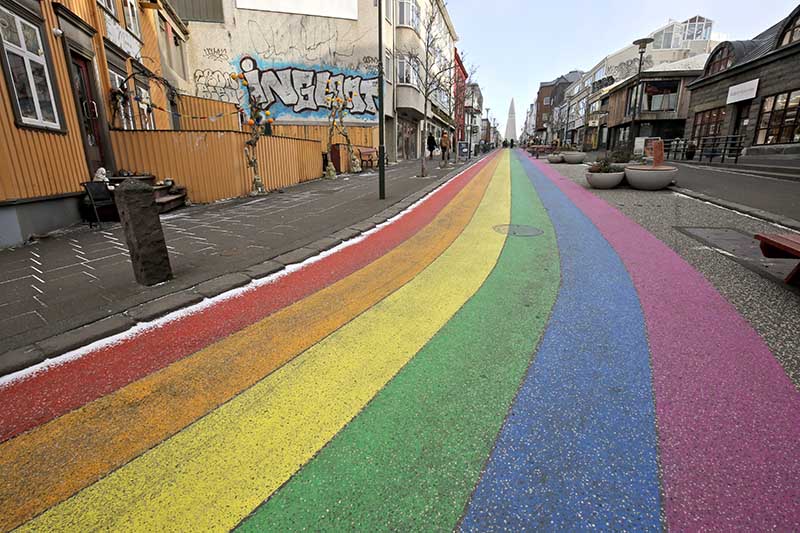
Iceland stands as a global leader in LGBTQ+ rights and acceptance, creating one of the world's most supportive environments for sexual and gender minorities. Legal protections encompass comprehensive anti-discrimination legislation, marriage equality, adoption rights, and gender recognition procedures.
Social acceptance extends far beyond legal frameworks into daily interactions and community support. Pride celebrations attract broad participation from all demographics, whilst LGBTQ+ individuals hold prominent positions across politics, business, and cultural sectors without facing systematic discrimination.
Healthcare services provide knowledgeable, affirming care for LGBTQ+ patients, including hormone therapy, surgical procedures, and mental health support specifically trained in minority stress and gender identity issues. The small healthcare system ensures personalised care relationships.
Family formation options include marriage equality, joint adoption procedures, and assisted reproductive technologies available to same-sex couples. Parental leave policies apply equally regardless of family structure, supporting diverse approaches to child-rearing.
The compact social environment means LGBTQ+ communities remain interconnected and supportive. However, some individuals may desire larger metropolitan areas with more diverse scenes and anonymous options unavailable in Iceland's intimate setting.
Rural areas demonstrate the same legal protections as urban centres, though social attitudes may vary. Most LGBTQ+ Icelanders gravitate toward Reykjavik for community connections and cultural amenities, though acceptance remains widespread throughout the country.
Practical Moving and Visiting Considerations
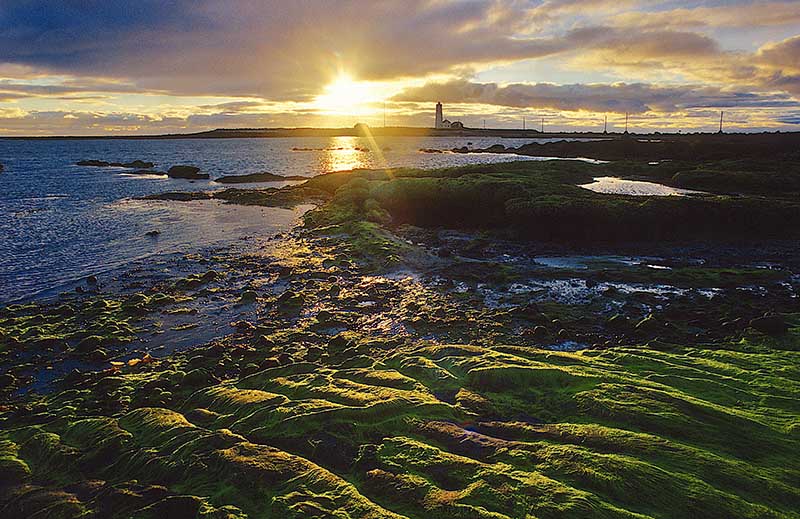
Successfully relocating to or visiting Iceland requires careful planning and understanding of practical requirements. EU/EEA citizens enjoy simplified residency procedures, whilst others must navigate work permits and residency applications that can take several months.
Banking and financial services require physical presence to establish accounts, though international cards work universally. Understanding the predominantly cashless society helps newcomers adapt quickly to digital payment systems used for all transactions.
Mobile phone services and internet connectivity exceed global standards, with 5G coverage in urban areas and reliable broadband throughout most inhabited regions. International roaming agreements keep communication costs reasonable for visitors.
Seasonal planning affects every aspect of life and visiting. Summer months offer extended daylight and accessible highland areas, whilst winter provides northern lights opportunities but requires different preparation and expectations.
Frequently Asked Questions
What language do I need to speak to live in Iceland?
English proficiency is widespread, particularly among younger generations and in tourist areas. However, learning Icelandic significantly enhances integration opportunities, career prospects, and social connections. Most official processes can be conducted in English, but Icelandic fluency opens doors to deeper community involvement and professional advancement.
How expensive is it really to live in Iceland compared to other European countries?
Iceland ranks among Europe's most expensive countries, with costs roughly 40-60% higher than UK averages. Housing, food, and entertainment represent the largest expense categories. However, higher wages, universal healthcare, and excellent public services offset some cost disadvantages. Rural living reduces expenses significantly whilst maintaining quality of life.
Can I easily find work in Iceland as a foreigner?
Employment opportunities exist across various sectors, particularly for skilled professionals in technology, healthcare, tourism, and finance. EU/EEA citizens face no employment restrictions, whilst others require work permits. English-speaking roles are common in international companies and tourism, but Icelandic language skills expand opportunities considerably.
What's the healthcare system like for immigrants?
Iceland's universal healthcare system provides comprehensive coverage for all legal residents after a brief qualifying period. Quality standards are exceptional, with modern facilities and well-trained professionals. Private insurance supplements public services but isn't essential. Prescription medications are subsidised, making chronic condition management affordable.
Is Iceland suitable for raising children?
Iceland consistently ranks among the world's best countries for children, offering excellent education systems, safe environments, and progressive family policies. Generous parental leave, subsidised childcare, and family-friendly workplaces support work-life balance. The outdoor lifestyle and cultural emphasis on creativity provide enriching childhood experiences.
What's the social life like in Iceland's small population?
The intimate population creates close-knit communities where residents often know each other professionally and socially. This facilitates networking and support systems but may feel limiting to those accustomed to metropolitan anonymity. Cultural events, outdoor activities, and community organisations provide numerous socialisation opportunities.
How do I prepare for Iceland's challenging weather conditions?
Invest in quality cold-weather clothing, including waterproof outer layers, warm base layers, and proper footwear. Vitamin D supplementation helps during dark winter months. Learn to drive in winter conditions if planning vehicle use. Embrace seasonal rhythms rather than fighting them, using summer's extended daylight and winter's cozy indoor culture to advantage.




